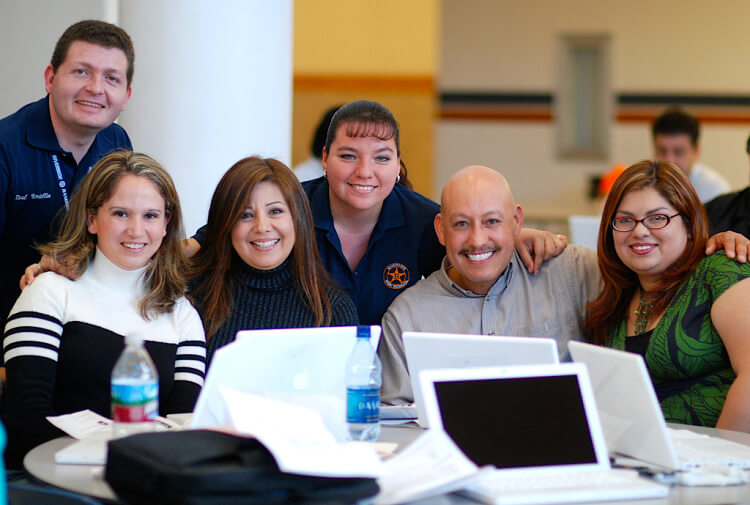Over the years, I have heard many physical education teachers make statements such as, “Don’t they understand that we are different?” or “This doesn’t pertain to me, so why should I be here?” Comments like these are typically made when a policy or expectation is made for all faculty and the Physical Education teacher for some reason believes that he or she should be exempt from its implementation or participation.
While at times I understand why physical educators express these comments, personally I think this line of thinking is at the very least self-serving, and at the worst dangerous to us as a profession. It’s vital that we think of ourselves first and foremost as part of the school teaching community. And we need to act as such if we want others to value us as an important part of the educational system.

Most recently the concept of being different has centered around the implementation of Student Learning Objectives (SLO.) Many physical education teachers and administrators I speak with are opposed to the idea of giving a cognitive assessment as a measure of student growth in physical education.
While I do agree that cognitive assessments have flaws when linked to teacher evaluation, I wholeheartedly go on record as supporting cognitive assessments as a viable form of evaluating student growth, as well as being an important tool for teacher reflection and curriculum mapping. An SLO that is created with specific standards and outcomes in mind, can not only give teachers information about which children need differentiated instruction, but also reveal the effectiveness of a teacher’s instruction.
Physical Education as an academic discipline needs to place as much importance on our cognitive, social, and emotional standards as we do our physical standards. SHAPE America standards 2 and 3 expect students to demonstrate knowledge. Our goal of 50 Million Strong to create physically literate individuals ultimately seeks to build a generation that not only moves but also understands how and why they are moving.
Physical educators should stop viewing the tools that classroom teachers use as hostile to their environment. We must be purposeful and creative in the implementation of cognitive assessments. Teaching and assessing in the cognitive domain should not be sacrificed to maximize physical activity time.
We are teachers, not trainers, not recreation directors and not athletic coaches.
Quality physical education teachers…
- Develop unit and lesson plans
- Teach to all students
- Observe, inform, and correct student performance
- Assess student learning
- Differentiate instruct
- Keep records
- Confer with parents
- Maintain order and discipline
We do these things just like every other teacher in our building. We are the same… and yet we are more! We need to stop looking at ourselves as one dimensional. Let’s teach to the whole child. Let’s teach our students how to move, why to move, the benefits of movement, how to move within a group or team, and to value how movement makes them feel. We may be a special type of teacher but we are educators none-the-less.
We should enter every faculty meeting, educational discussion, parent conference and professional development with the mindset of a teacher. We need to attend those meetings as though we are a quarterback at a lineman’s camp; an important player on the team who can gain invaluable insight from understanding the other players’ positions and responsibilities.
With the implementation of Every Student Succeeds Act (ESSA), physical and health education are finally considered part of a child’s well-rounded education. We can’t afford to sit patiently at the end of the bench. We need to make ourselves a valued member of the team by learning the plays, supporting our teammates, and working as hard as we can for the success of the team.
There is no “I” in Team! Ready, on 3…. 1- 2 -3- Hard Work!

I have never used the “we are different” speech as a way to try get out of requirements that the school has for all teachers. I have never heard another HPE teacher use that speech for this reason. Truth is, what we teach is different. That doesn’t mean we don’t have standards or slack off because what we teach is different, it means that our classroom looks a lot different than a “regular” classroom. High Standards are universal. A well rounded assessment has cognitive assessments included. If we believe that physical activity stimulates brain growth, then of course we measure it. The biggest problem I have run into in all my years of teaching is administrators who don’t think HPE is as important as other subjects. I have purchased several ‘SPARK’ books for administrators over the years, to no avail I might add.Of course there will be teachers in any curriculum that whine because they have to do “something”. I don’t see it so much as a HPE problem as an administrator problem. Let’s take a look at teacher and administrator preparation at the university level. Administrators…do your job…guide your teachers to the best they can be for their kids…have some guts to tell them what they are doing wrong and how to improve, and if they don’t, ask them to move on, or do it yourself, it’s part of your job.